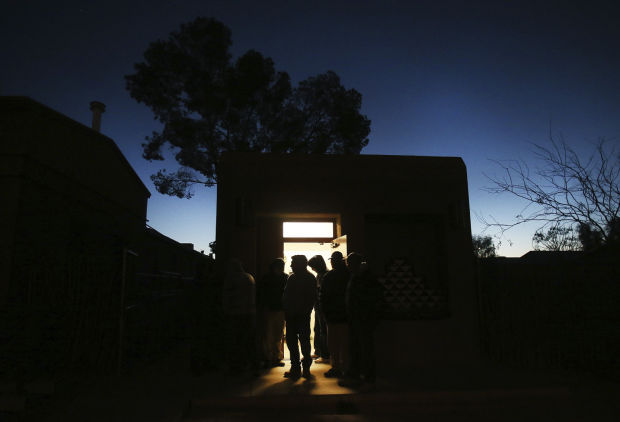PHOENIX — Lawyers for the state are taking legal steps designed to eventually allow police to arrest day laborers who step into traffic to solicit work.
Assistant Attorney General Michael Tryon wants U.S. District Judge Susan Bolton to deny a request by challengers to permanently void a 2010 law that makes it a crime to enter a motor vehicle stopped on the street in order to be hired if the vehicle blocks or impedes traffic. Violators can end up in jail for up to six months.
The law also prohibits someone in a car or truck to stop in an attempt to hire a temporary worker.
A federal appeals court in 2013 blocked the state from enforcing both provisions while its legality is litigated. Now challengers are asking Bolton to formally declare the measure unconstitutional without further hearings.
Tryon, in documents filed late Tuesday, told Bolton she should reject the request.
He said there is enough evidence to show Arizona lawmakers had a legitimate reason for enacting the restrictions. More to the point, Tryon is arguing that just because the law targets day laborers — and only day laborers — does not make it illegal.
The two sections at issue are part of SB 1070, an extensive measure with the stated intent of curbing the number of people in this state illegally.
Several key provisions already have been struck down as pre-empted by federal law. For example, one would have made it a state crime for those not here legally to work in Arizona or even apply for a job.
Other sections remain in effect. That notably includes requiring police who have stopped people for any reason to ask about their immigration status if there is reason to believe they are not authorized to be in the United States.
Various immigrant-rights groups are moving toward a trial on that provision. But in the interim they want Bolton to immediately swat down other sections they contend are “facially illegal,” like the ones aimed at day laborers and the people who hire them.
In his latest pleadings, Tryon acknowledged that the 9th U.S. Circuit Court of Appeals, in putting those sections on hold, concluded they illegally infringed on the First Amendment rights of day laborers.
Appellate Judge Raymond Fisher, writing for the unanimous three-judge panel, specifically cited the fact that it applied only to day laborers.
But Tryon told Bolton she should consider evidenceabout why legislators did that.
“Day laborers tend to congregate in large groups on busy roadways, at busy intersections, and at the entrances of major businesses,” he wrote.
He said one photo taken by the owner of Pruitt’s Furniture in Phoenix, which is located near a Home Depot, shows a truck stopped at a green light while day laborers “piled into the truck’s bed.”
Tryon said other photos show people talking to motorists while vehicles are stopped in the road or blocking driveway access.
And he brushed aside the fact the law does not apply to other situations, such as drivers dropping off passengers at events or even scalpers trying to sell tickets to motorists.
“The situations are not directly comparable,” Tryon responded. “Special events can be anticipated and adequately staffed with specially trained officers.”
Tryon also said that existing traffic laws, such as requiring motorists to drive at a minimum speed, are inadequate to deal with the situation.
And he disputed the finding of the 9th Circuit that the real purpose of the law was not traffic control but to go after people not here legally.
He pointed out that Rep. John Kavanagh, R-Fountain Hills, now a state senator, had introduced versions of the same measure even before SB 1070 was considered in 2010.
Attorneys for the challengers concede the point.
But they also said Kavanagh testified that one motivating factor for each of the measures was to address illegal immigration. And they said he promoted the bills in emails to constituents and on his website as part of his “anti illegal-immigration program.”
Tryon did not address one other issue raised by challenges and found important by the 9th Circuit in its 2013 order: the disparity of penalties that Fisher, in his ruling, called “far out of line” with punishments for other similar traffic violations.
He said, for example, that laws already on the books in 2010 said someone who recklessly impedes traffic can be jailed for up to 30 days.
But a day laborer who merely impedes traffic can end up behind bars for six months.





